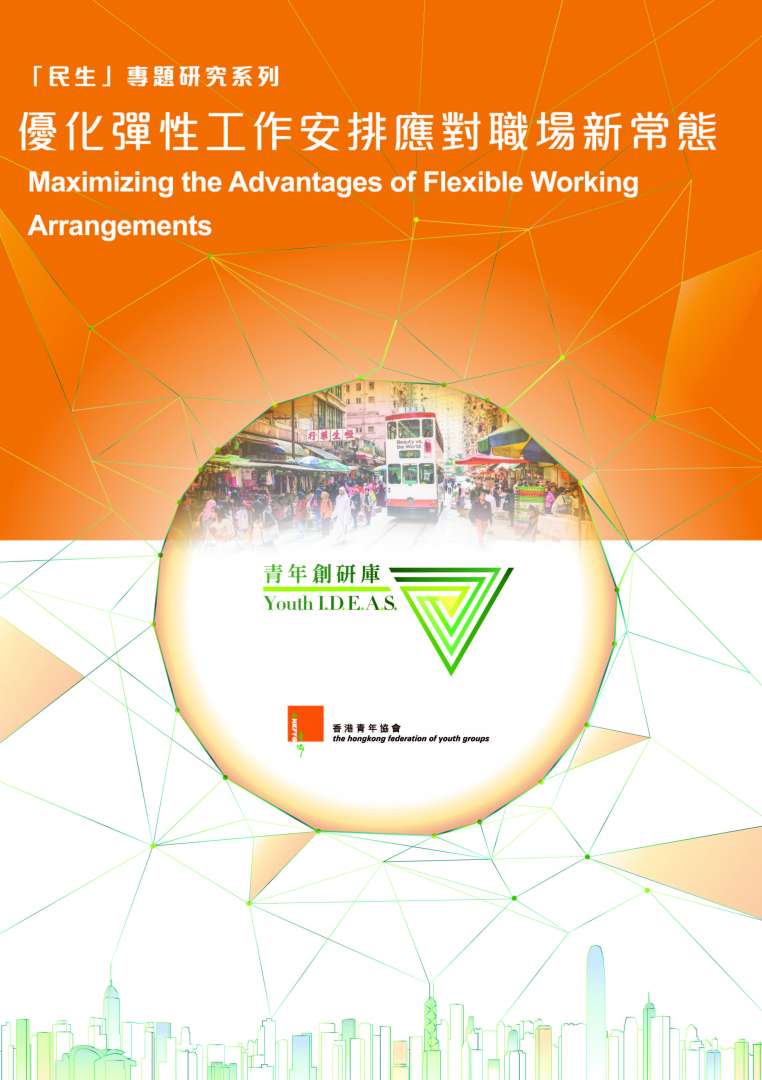Maximizing the Advantages of Flexible Working Arrangements
Youth I.D.E.A.S. 52
Livelihood
Maximizing the Advantages of Flexible Working Arrangements
27 September, 2020

The outbreak of the COVID-19 pandemic at the start of 2020 has drastically changed workplace culture. To help contain the spread of the virus many companies were forced to shutdown. Other employers implemented “special working arrangements” to maintain social distance among employees and adopt a “new normal” brought about by the pandemic. These social distancing measures have included flextime, shift work and remote working.
At the same time, COVID-19 has also changed people’s daily lives and consumption practices. Many businesses have adapted by offering online shopping and started developing remote services so that they can survive the COVID-19 recession. As government officials have highlighted the pandemic will go on for a long time to come, companies will need to rethink their management and working patterns for the foreseeable future, and prepare for the possibility of even more severe pandemics.
Hong Kong with its increasingly aging population, is also facing a continuous longer-term decrease in its labour force, while its potential labour force is actually under utilised. The HKSAR Government has been trying to encourage employers to implement flexible working arrangements (FWAs) by introducing “Family-friendly Employment Practices” in 2006. FWAs refer to work options that permit flexibility of ‘where’ work is completed (often referred to as “telecommuting” or “flexplace”) and/or ‘when’ work is completed (often referred to as “flextime” or “scheduling flexibility”). In doing so, the government hopes that it would increase the available labour force, including those women who have just given birth and the elderly.
Recently there has been a growing trend of improving the “work-life balance” among employees, which itself has become more diversified. However, the Hong Kong workplace generally lacks flexibility. Authorities have not fully implemented FWAs nor considered youth needs for work-life balance. Hong Kong’s progress in this area is lagging behind many developed countries that have already carried out such policies in response to employees’ voices. Employers that implement flexible working arrangements for their employees, can not only maintain productivity during the COVID-19 pandemic, but also help young employees to better utilise their time.
This study aims to understand young employees’ needs and views on FWAs while, through understanding employers’ concerns, investigating whether the necessary conditions exist to implement FWAs among Hong Kong’s workplaces. Referencing the experience of other countries in implementing FWA-related policies, we hope to offer feasible solutions to improve the flexible working arrangements in Hong Kong. This is to help reduce companies’ loss of productivity, and prepare society for the post-Covid-19 “new normal”.
Discussion
- Hong Kong’s potential labour force is not yet fully utilised. Local government initiatives to promote FWAs lag behind other developed countries, while Family-friendly Employment Practices ignore youths’ needs for FWAs, undermining the overall development of human resources.
- Overtime working among Hong Kong employees is common, but the adoption of a statutory working hours standard has been prevented due to the controversy between labour unions and business owners. However there has been significant government influence to encourage organisations to be role models in implementing FWAs, especially during the COVID-19 pandemic.
- The interviewed youth think that FWAs have a positive influence on work-life balance.
- The interviewed youth in general would use FWAs if offered the option. There is a correlation between job nature and the level of significance of FWAs.
- Representatives of employers and scholars showed their concern for implementing FWAs in Hong Kong due to difficulties faced by certain industries and departments.
- Factors hindering employers to further implement FWAs include: lack of infrastructure, difficulty in measuring employee’s work performance, unsuitable working environment of employee’s home and lack of manpower. As for the legislation of FWAs, there has not yet been a consensus.
- As the pandemic is expected to last for a while, companies must adapt to the “new normal” in workplaces, and prepare for any emergencies in the future; FWAs might be the key to this.
Recommendation
- Enhancing the Distance Business Programme.
- Set up employee-based indicators to measure the effectiveness of the implementation of FWAs in Hong Kong.
- Reviewing existing labour laws on insurance coverage.
- Repositioning the role and function of the Family Council.
- Providing subsidies or tax benefits to awardees in the Family-Friendly Employers Award Scheme.




